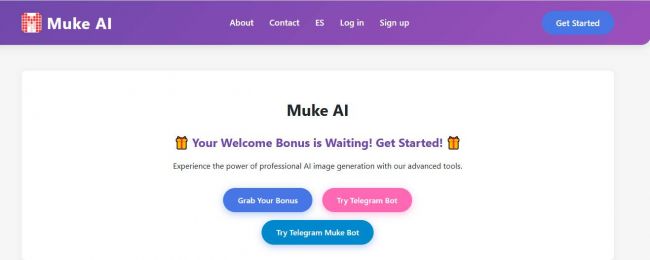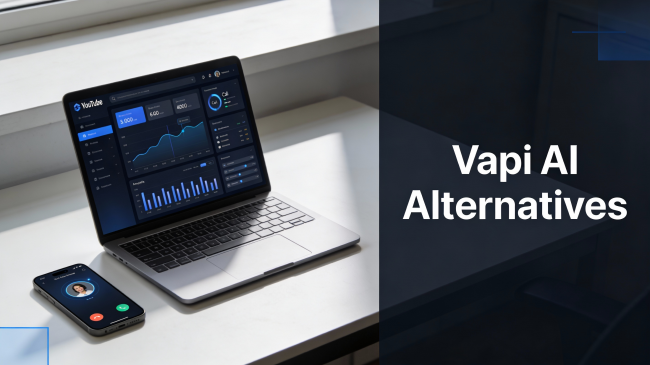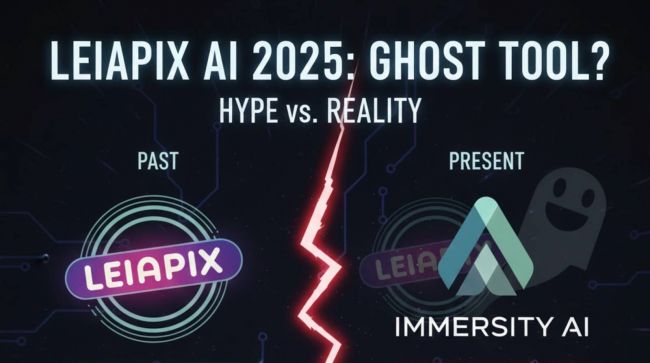On This Page
- What is Poly AI and How Does It Work?
- Poly AI Features and Capabilities
- Poly AI Pricing and Plans
- Poly AI Use Cases Across Industries
- Poly AI Reviews from Real Users
- Advantages of Using Poly AI
- Limitations of Poly AI
- Poly AI Integrations with Existing Systems
- Poly AI vs Competitors (C.ai, Dialogflow, Five9, etc.)
- Poly AI for Small vs Large Businesses
- Security and Compliance in Poly AI
- Future of Conversational AI: Where Poly AI Fits
- Poly AI Careers and Work Culture
- Poly AI Alternatives You Can Try
- Is Poly AI Worth It? A Final Verdict
- Final Thoughts
What is Poly AI and How Does It Work?
When I first stumbled upon Poly AI, I expected just another chatbot dressed up in enterprise clothing. But what I discovered was quite different. Unlike most tools that live inside a website chat box, Poly AI is designed primarily for voice-first interactions. That means when you call a company supported by Poly AI, you’re not greeted by a clunky IVR (“Press 1 for billing, Press 2 for support”). Instead, you talk to an AI that sounds startlingly human.
_1756533558.png)
It works by combining speech recognition, natural language understanding, and voice synthesis into one loop, allowing it to respond fluidly. More importantly, it integrates directly with enterprise databases and CRMs, so it’s not just “talking” — it’s doing actual work like booking reservations, confirming payments, or updating orders.
Poly AI Features and Capabilities
As I dug deeper into the official site and reviews, these were the standout features that got my attention:
- Natural Speech Handling → It recognizes accents, dialects, and even handles customers who pause or stumble mid-sentence.
- 24/7 Availability → No more “our office is closed” messages; the AI can keep support live around the clock.
- Enterprise Integrations → Works with Salesforce, Zendesk, AWS, and other enterprise tools.
- Real-Time Adaptability → Businesses can tweak scripts or flows without rebuilding everything.
- Scalable Architecture → Built for thousands of simultaneous calls, making it appealing to hotels, banks, and airlines.
That focus on scalability is where I realized Poly AI is more than a neat demo — it’s infrastructure-level.
Poly AI Pricing and Plans
Here’s where things get a little tricky. Poly AI doesn’t publish pricing on their site. When I checked the AWS Marketplace listing, it became clear that this is enterprise-level software where costs depend on the scale of deployment.
For businesses, this usually means custom quotes. If you’re expecting a $99/month SaaS plan, you’ll be disappointed. From what I gathered in discussions and reviews, Poly AI is priced more like an infrastructure partner — high upfront, but potentially offset by reduced staffing costs in call centers.
Poly AI Use Cases Across Industries
This is where things got interesting. As I looked through real-world applications on Techraisal’s review and Reddit discussions, I saw how flexible Poly AI could be.
- Hospitality → Imagine calling a hotel at midnight to confirm your booking. Poly AI can handle it, no human agent needed.
- Banking & Finance → Customers checking account balances, loan application status, or scheduling branch visits.
- E-commerce → Order tracking, returns, and product inquiries through phone conversations.
- Logistics & Transportation → Tracking shipments without waiting on hold.
- Retail Chains → Loyalty program queries, store hours, or inventory availability.
What struck me was how many mundane but critical customer interactions could be automated while still sounding empathetic.
Poly AI Reviews from Real Users
Before I let myself get too excited, I did what I always do: I checked reviews.
On G2, users praised the natural flow of conversations and the fact it could handle large call volumes without cracking. Capterra reviews showed similar sentiments, especially around cost savings for enterprise clients.
But then I went on Reddit. The “thing about Poly AI” thread and another discussion on its worth gave a more candid picture. People were skeptical about whether smaller businesses would benefit, and some argued alternatives like C.ai might make more sense for casual users.
That contrast was valuable. Enterprises love it; smaller teams question its ROI.
Advantages of Using Poly AI
From my research, these are the biggest benefits I saw repeatedly:
- Conversations sound natural, not robotic.
- Handles accents and varied speaking styles.
- Can cut down long call queues.
- Works 24/7 without human fatigue.
- Scales across thousands of calls simultaneously.
- Strong enterprise security and compliance.
For businesses handling massive call volumes, these advantages translate directly to customer satisfaction and cost reduction.
Limitations of Poly AI
Of course, nothing is perfect. Here’s what came up as potential drawbacks:
- Setup Complexity → Deployment requires technical resources.
- Enterprise Focus → Overkill for small businesses.
- Pricing → Not transparent, likely on the higher end.
- Staff training needed to manage updates.
In short: fantastic for enterprises, but not a plug-and-play solution for a two-person startup.
Poly AI Integrations with Existing Systems
One reason Poly AI appeals to enterprises is its integration ecosystem. From my reading, it supports:
- AWS infrastructure for scalability.
- CRM integrations (Salesforce, Zendesk).
- Custom APIs for industry-specific workflows.
- Analytics dashboards to measure performance.
That kind of connectivity is what separates Poly AI from smaller conversational AI experiments.
Poly AI vs Competitors (C.ai, Dialogflow, Five9, etc.)
I also wanted to see how it stacks up against competitors.
- Poly AI → Voice-first, natural-sounding, enterprise focus.
- C.ai → Personal, entertainment-focused, not enterprise-grade.
- Dialogflow (Google) → Flexible, text + voice bots, developer-centric.
- Amazon Lex → AWS-native, but less natural in speech than Poly AI.
- Five9 / Genesys → Traditional contact center AI players with less focus on fluid speech.
For a business comparing options, Poly AI stands out where voice quality and realism matter most.
Poly AI for Small vs Large Businesses
This became one of my biggest takeaways.
- Small businesses → Likely won’t see enough ROI due to high setup and maintenance costs.
- Large enterprises → Perfect fit, especially in industries with thousands of repetitive customer calls daily.
It’s clear Poly AI is targeting the enterprise sweet spot rather than the mass market.
Security and Compliance in Poly AI
Another factor I checked: security.
Poly AI, being enterprise-first, emphasizes data encryption, GDPR compliance, and safe handling of personal/financial data. For banks or healthcare providers, this makes it viable where cheaper alternatives would fail compliance checks.
Future of Conversational AI: Where Poly AI Fits
As conversational AI evolves, the trend is moving towards voice-first assistants that can replace human agents for repetitive tasks. Poly AI fits right into this future as a “customer service AI backbone.”
While chatbots like ChatGPT and Character AI focus on text or entertainment, Poly AI is building infrastructure for serious business use cases.
Poly AI Careers and Work Culture
Curious about the team behind it, I browsed Glassdoor reviews. Employees mentioned a strong research-driven environment, with plenty of opportunities to work on cutting-edge AI. But, as with many startups, scaling the business side is still a work in progress.
If you’re someone interested in conversational AI careers, Poly AI seems like a challenging but rewarding place to be.
Poly AI Alternatives You Can Try
If you’re not ready for Poly AI, here are alternatives worth considering:
- Google Dialogflow → Great for developers.
- Amazon Lex → AWS integration but less natural.
- C.ai → Fun, casual, not enterprise-grade.
- Five9 / Genesys → Longstanding contact center solutions.
Is Poly AI Worth It? A Final Verdict
After reading reviews, exploring demos, and comparing competitors, here’s my verdict:
- If you’re a large enterprise handling thousands of daily calls, Poly AI is absolutely worth considering.
- If you’re a small business, it may be too complex and costly for your needs.
The pros — natural conversations, scalability, enterprise integrations — far outweigh the cons for companies with the right scale. But for startups, a simpler chatbot might be a better starting point.
Final Thoughts
Poly AI is not just another AI assistant. It’s a voice-first platform built for enterprises that want to automate customer service without losing the human touch. From hospitality to banking, it’s proving that AI can replace traditional call centers without sacrificing empathy.
For me, what stood out was not just the technology but how real users on Reddit and G2 described it: practical, powerful, but not for everyone. And that’s exactly the balance to keep in mind — Poly AI shines where scale meets necessity.
Post Comment
Be the first to post comment!





